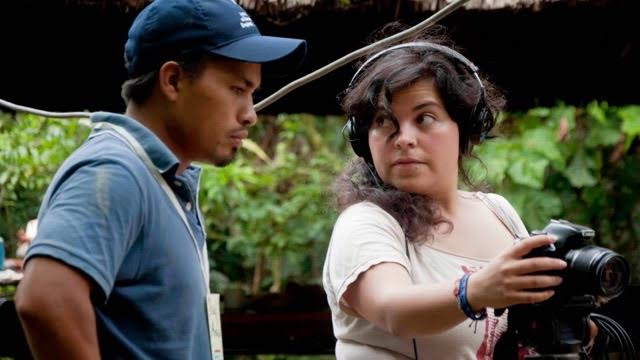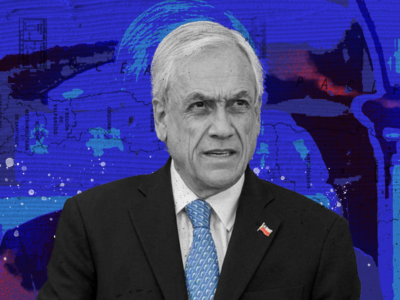
Image from one of the film workshops held in the Sarayaku community. Photo courtesy of YouTube channel El Churo
The community of Sarayaku in the Pastaza province, located in the Amazon region in the eastern part of Ecuador, is an area of rich biodiversity where the native Kichwa people maintain a constant struggle against transnational companies seeking to exploit the oil found on their land.
In 2003, the Association of the Kichwa people of Sarayaku, with the support of several national and international organizations, filed a complaint with the Inter-American Commission of Human Rights (CIDH for its initials in Spanish) based on violations committed by the Ecuadorian government against the people's rights to property, freedom of movement, religion, health, and culture.
The commission ordered the government to investigate the acts of violence and to take necessary provisional protective measures. It also established that the government must consult the Sarayaku people before carrying out any extraction of natural resources on their land.
At Global Voices we've previously written about their struggle and the methods used by the community to make their reality known, such as through their blog. The communications team, in collaboration with El Churo Collective, supported by Rising Voices through the Rising Voices Amazon initiative, recently organized a series of workshops that trained young people in the use of digital video so they could tell their own stories and shape their cultural identity.
The videos have been published on the YouTube channel of El Churo.
One of these videos is “South Amazon: Antonia, cassava, the harvest, and her family.” Antonia, a Kichwa woman who wakes up in the early hours of the morning to go to work in her canoe, recounts her childhood and shares stories about their livelihood of fishing, hunting and agriculture.
She explains that the people of this community only planted on Saturdays and some families even sang before planting. However, Fridays were considered days of bad energy for agriculture. Cassava is an essential part of her life because it is used in rituals that help ensure that the harvest is fruitful.
For Antonia, it is not important that oil is exploited because the only thing that she and other residents of the Sarayaku community, which means “river of corn,” want is to preserve their traditions, customs, and legends that are being lost with the advancement of technology. In addition, many youth are no longer interested in learning these important aspects of their culture.
So they are betting on technology, so that young people of the community can help preserve their cultural heritage.







